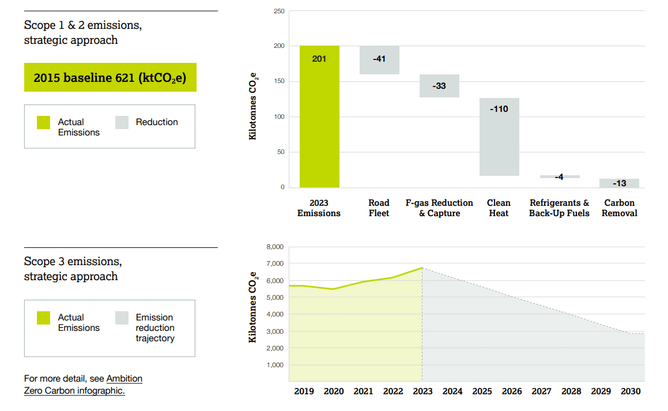AstraZeneca Sustainability Report 2023 Reveals Progress

In its 9th annual sustainability report, healthcare business AstraZeneca reveals that it is on track to meet 25 of its 27 sustainability targets.
The 40-page report outlines its approach and progress towards targets in 2023.
In his introduction, CEO Pascal Soriot wrote: “With the healthcare sector responsible for around 5% of global emissions, we must significantly reduce our environmental footprint.
“At AstraZeneca, we’re driving deep decarbonisation across our value chain through our flagship Ambition Zero Carbon strategy.
“We’re investing US$1bn to reduce emissions from the lab to the patient and are integrating more circular approaches into the discovery, development and delivery of medicines with the latest digital technologies and innovation.”
Pascal also highlighted AstraZeneca’s AI-monitored tree planting programme: “We’re also restoring nature and supporting biodiversity through our AZ Forest programme, which expanded in 2023 to a US$400m initiative to plant and maintain 200 million trees by 2030.”
Driving down emissions and planting trees
Highlights from the report include:
- A 67.6% reduction in Scope 1 and 2 greenhouse gas emissions since 2015 (target 98% by 2025)
- 19.9 million trees planted in Australia, Brazil, Ghana, India, Indonesia, Rwanda, the UK and the US since 2020
- Total waste was 26,213 tonnes, down 13.2% from 2015
- Total energy use was 1,511,334 MWh, down 17.5% on 2015 and ahead of the target of 10% by 2025
- 95% of all electricity use came from renewable sources in 2023 (target 100% by 2025)

The report shows that Scope 3 emissions targets are presenting challenges.
AstraZeneca aims to reduce Scope 3 greenhouse gas emissions 50% by 2023 and 90% by 2045, from a 2019 base year.
The report reveals that total Scope 3 emissions increased by 18.6% from 2019 and Scope 3 intensity reduced by 24%. It said: “Significant increase in use of primary data and suppliers setting SBTis will support future absolute emissions reductions towards [the] 2030 target.”
******
Make sure you check out the latest edition of Sustainability Magazine and also sign up to our global conference series - Sustainability LIVE 2024
******
Sustainability Magazine is a BizClik brand
******






